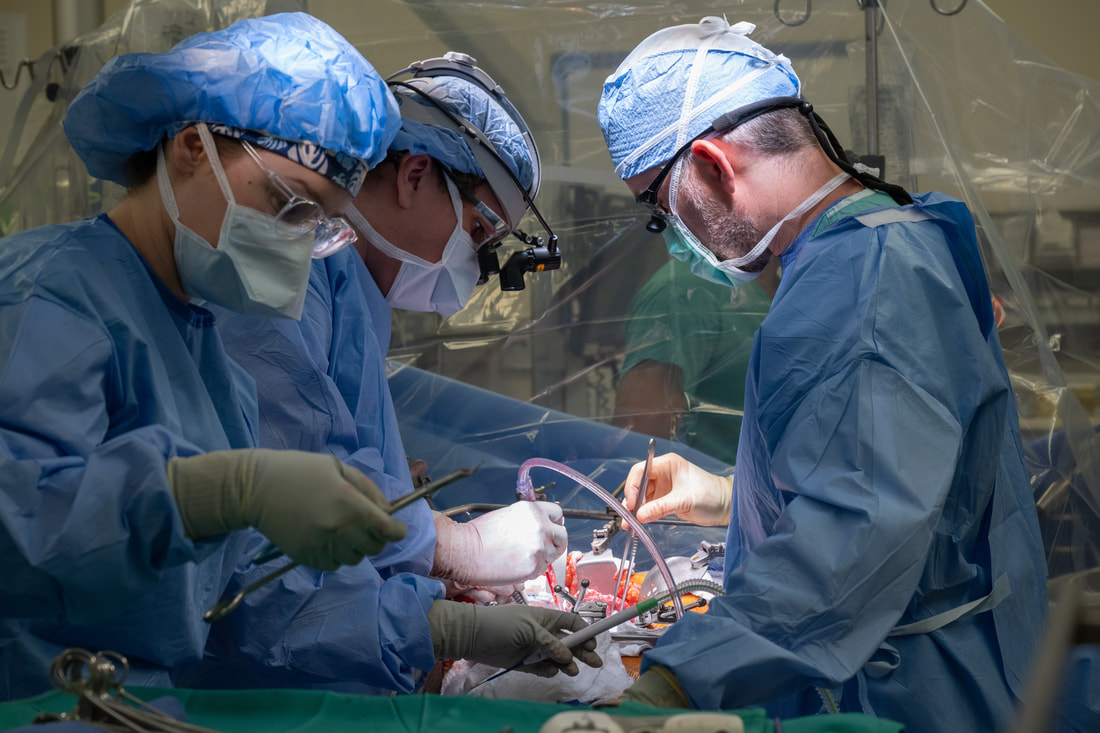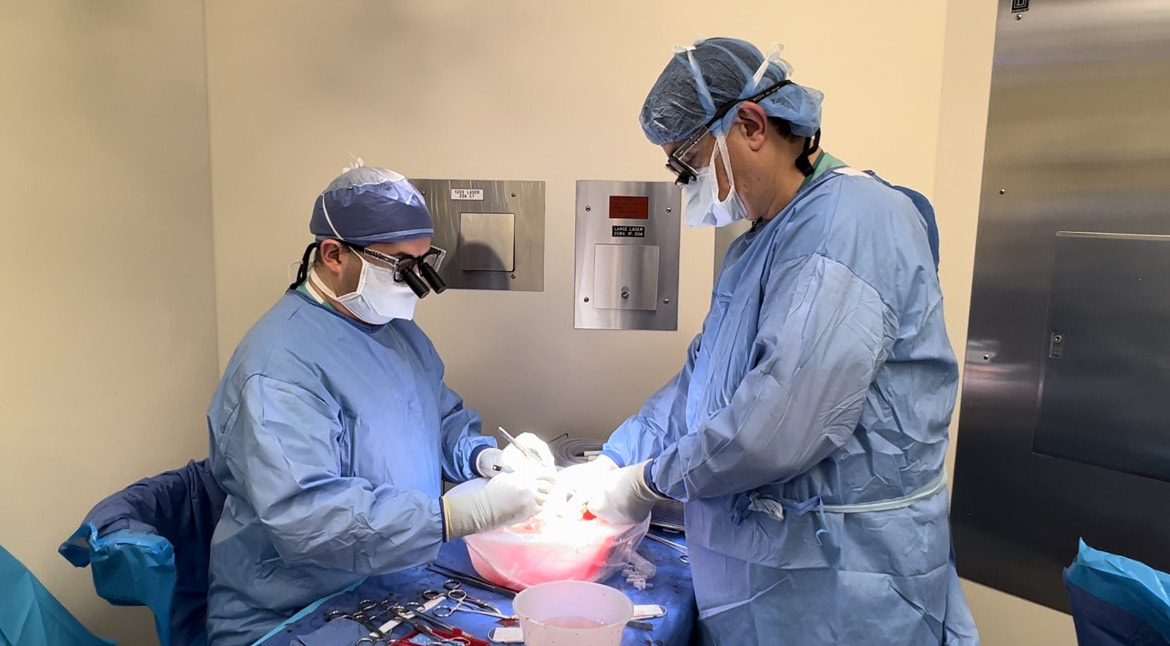Guaranteed weight loss maintenance is not a potential benefit of surgical obesity treatment. It does not ensure permanent results without lifestyle changes.
Surgical obesity treatments, like gastric bypass or sleeve gastrectomy, offer significant weight loss in individuals suffering from morbid obesity. These procedures can lead to improved mobility, enhanced mood, and a reduction in obesity-related health conditions such as diabetes, hypertension, and sleep apnea.
Patients often experience a better quality of life post-surgery, but it is crucial to note that surgery is just one step in the weight management journey. Proper diet, regular physical activity, and psychological support are also essential to sustain the benefits of surgery. While these treatments have a proven track record, they also come with risks and require a lifelong commitment to healthful habits to avoid weight regain and ensure the full spectrum of benefits.

Credit: breakthroughsforphysicians.nm.org
The Surge In Surgical Obesity Treatment
Obesity is a growing challenge. People across the world are turning to surgery. This method may offer a new lease on life. Yet, not all benefits are guaranteed. Let’s explore the trend and interventions.
Rising Obesity Rates Worldwide
Global obesity rates are climbing. Fast food, sedentary lifestyles, and genetic factors play roles. This surge pushes the need for advanced treatments.
- More adults and children become overweight.
- Health risks increase, like diabetes and heart disease.
- Surgical treatments become a considered option.
Evolution Of Surgical Obesity Interventions
Bariatric surgery has evolved. From risky procedures to safer laparoscopic techniques, options expand.
- Lap-Band® and gastric bypass were just the beginning.
- Today, sleeve gastrectomy and BPD-DS improve outcomes.
- Minimally invasive methods mean less recovery time.
These surgeries aim for weight loss. They are not a cure-all. Mental health support and lifestyle changes are vital, too.
The Promise Of Bariatric Surgery
Bariatric surgery opens a door to a new life for many struggling with severe obesity. It’s not simply about shedding pounds. This surgery offers a way to rewrite someone’s future, far beyond the scale. Let’s explore the enduring benefits and why this medical intervention might not just be about weight loss.
Sustainable Weight Loss Achievements
Bariatric surgery isn’t a quick fix. It’s a powerful step towards long-term weight management. For those who’ve faced uphill battles with diet and exercise, this surgery offers a new path. Patients typically see a significant weight drop, often shedding 50% or more of excess weight. Still, it’s crucial to remember, success demands lifestyle changes.
- Lifestyle adaptation remains key to maintaining results.
- Patients learn to embrace healthier food choices and portion control.
- Regular physical activity becomes part of daily life.
- Support groups and follow-up care ensure continued success.
Health Improvements Beyond Weight Loss
Imagine life with fewer medications, better sleep, and more energy. Bariatric surgery holds this promise. Weight loss is just the start. It can reverse or improve serious health issues tied to obesity.
| Condition | Improvement Rate Post-Surgery |
|---|---|
| Type 2 Diabetes | Up to 90% see remission |
| High Blood Pressure | Many experience significant reduction |
| Obstructive Sleep Apnea | Over 80% report improvement or remission |
| Heart Disease | Lowered risk of coronary events |
Results can vary based on the individual and type of surgery.
Patients also report increased mobility and better mood. From less joint pain to enhanced self-esteem, the benefits reach far.
Common Misconceptions
Many people hold false beliefs about surgical obesity treatment. It is not simply a one-stop solution. Let’s explore some of these myths and clarify what these procedures actually entail.
Quick Fix Myths
Weight loss surgery is not an overnight solution. Patients should not expect to shed pounds without effort. Here’s the truth:
- Such surgeries require lifestyle changes.
- They demand diet and exercise commitment post-operation.
- It’s a tool, not a cure.
Misunderstanding The Risks
The surgery has risks like any other. It’s vital to understand them:
| Perception | Reality |
|---|---|
| Risk-free | Complications can occur |
| Instant results | Benefits manifest over time |
Seriousness about post-surgery plans is a must. Guidance from doctors helps manage risks effectively.
Debunking Non-benefits
Exploring surgical obesity treatment is a key step for many. Yet misconceptions exist about its outcomes. This section debunks two common myths about the potential benefits of surgical obesity treatments. Understanding these points helps set realistic expectations.
Curing Obesity-related Conditions Completely
Surgical treatments do not guarantee a cure for conditions linked to obesity. Conditions like type 2 diabetes, hypertension, and sleep apnea might improve post-surgery, but they often require ongoing management.
- Diabetes may improve, yet monitoring remains critical.
- Hypertension requires continuous lifestyle adjustments post-procedure.
- Sleep apnea improvements do not equate to complete cure.
Long-term health depends on a combination of surgery and lasting health habits.
Permanent Results Without Lifestyle Changes
Bariatric surgery is not a one-time fix. Permanent weight loss is a myth without lifestyle changes. Post-surgery, diet and exercise are critical to maintaining results.
| Myth | Reality |
|---|---|
| No need for diet control | Essential for success |
| Exercise is optional | Crucial for maintaining health |
| Permanent weight loss | Requires ongoing effort |
Lifestyle commitment is crucial for the sustainability of surgical results.
Objective Appraisal Of Surgical Outcomes
Objective Appraisal of Surgical Outcomes is crucial when considering surgical obesity treatment. It involves a detailed look at the potential benefits. Yet, not all outcomes are positive or guaranteed. Patients and doctors must weigh the pros and cons. Knowing what benefits are not likely is part of informed decision-making.
Analyzing Success Rates
Success after surgery goes beyond just weight loss. It includes health improvements and quality of life. We measure these outcomes to paint a clear picture. Short-term wins may differ from long-term expectations. A critical metric is the percentage of patients maintaining weight loss over time.
Comparing Surgical And Non-surgical Treatments
Comparing different treatments is vital. This helps us understand how surgery stacks up against diet, exercise, and medication.
- Effectiveness: Surgery often leads to more weight loss than other methods.
- Risks: Unlike lifestyle changes, surgery carries risks like any major procedure.
- Recovery: Post-surgery, patients face a recovery period that non-surgical patients don’t.
These differences are key when considering the best course of action.

Credit: breakthroughsforphysicians.nm.org
Alternative Strategies Against Obesity
While surgical obesity treatments can be life-altering, they are not the sole option for those seeking a rejuvenated lifestyle. The fight against obesity encompasses a spectrum of non-surgical strategies that serve as viable alternatives for individuals seeking to avoid the scalpel.
Non-invasive Medical Approaches
The medical field offers innovative solutions that do not involve surgery. Some of these include:
- Prescription Medication: These can reduce appetite or block fat absorption.
- Behavioral Therapy: Professional counseling assists in breaking old habits and forming new, healthy ones.
- Medical Devices: Options like gastric balloons create a sense of fullness without surgery.
Lifestyle And Dietary Adjustments
Adopting a new lifestyle proves essential in addressing obesity outside the operating room:
- Wholesome Diet: Incorporating fruits, vegetables, and whole grains reduces calorie intake.
- Regular Physical Activity: Engaging in exercise burns calories and builds muscle.
- Consistent Sleep Schedule: Adequate rest supports weight loss and helps control hunger.

Credit: www.facebook.com
Frequently Asked Questions Of Which Is Not A Potential Benefit Of Surgical Obesity Treatment
Does Surgical Obesity Treatment Ensure Weight Loss?
Surgical obesity treatment often results in significant weight loss. However, the long-term success depends on lifestyle changes and ongoing follow-up care. It’s not a one-time guaranteed solution.
Can Obesity Surgery Improve Other Health Conditions?
Yes, obesity surgery can improve conditions like diabetes, high blood pressure, and sleep apnea. It’s often associated with better overall health outcomes when combined with lifestyle modifications.
What Risks Are Involved In Obesity Surgery?
Risks include infection, bleeding, vitamin deficiencies, and in rare cases, complications that may require additional surgeries. It’s crucial to discuss potential risks with a healthcare provider.
Will Obesity Surgery Affect Pregnancy?
Women should avoid pregnancy for 12-18 months post-surgery due to rapid weight changes. After this period, many women experience healthier pregnancies than before surgery.
Conclusion
As we have explored, surgical obesity treatment offers myriad health benefits. Yet, it doesn’t guarantee overnight success or negate lifestyle changes. It’s crucial to set realistic expectations and commit to a lifelong journey of wellness. Remember, surgery is a tool, not a cure-all.
Embrace the support and guidance offered by medical professionals to maximize your potential for a healthier life.


